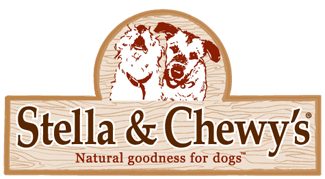
Entrepreneur Profile: Stella & Chewy’s
When Marie Moody took her sick dog to the veterinarian, she was alarmed to learn that he wouldn’t live much longer without special care. The vet recommended switching her dog, Chewy, to a raw food diet.
After some initial research, Moody formulated a diet of raw meat and uncooked vegetables and fruits. When Chewy’s health began to improve, she prepared the diet for her other dog, Stella, who also seemed to get healthier. That’s when Moody had the idea for Stella & Chewy’s, a raw dog food company she launched in 2003.
Moody quit her job as a marketer for high-end fashion labels, and instead began hand-making her dog food in her New York City apartment. She received a $50,000 loan from her father to purchase freezers for 50 of the top pet stores in New York, used taxis to make deliveries, and even gave out samples on street corners. By 2004, Moody had bootstrapped her way into a dozen stores with sales of about $10,000 a month, but the company was still only break-even.
Determined to grow the business, Moody took a leap: she packed up and moved to her native Wisconsin, where she could work more closely with the state’s meat industry and develop relationships with suppliers. In 2006, she secured an SBA-backed loan of $650,000, nearly all of it earmarked for resellable equipment, minimizing the risk for her lender. In 2007, Moody opened a plant occupying 12,000 square feet with two employees, and she inked a distribution deal later that year to sell her products in 750 stores on the East Coast.
Moody started her company “without any expectation of what it would turn into,” but it was something she felt passionate about from the start. Three years after opening its plant, Stella & Chewy’s is maxed out on its space of 20,000 square feet and looking to expand further. The company now employs 66 people, reached $5 million in sales in 2009, and is projected to hit $10 million in sales in 2010.
Moody offers the following words of advice to business owners looking to emulate her success:
- Understand what problems you’re solving for the customer, and look at the business from their perspective: Moody said in a recent interview that she always knew “people who love their pets would buy them better food if it was out there.” Moody’s experience shows that companies who truly understand their customers will often address their needs better than competitors can. Moody was able to offer a healthier food product for pet owners, while at the same time addressing customer concerns about safety by developing and patenting a food safety system.
- Know what you don’t know, and don’t be afraid to ask those who do: We’ve previously profiled other entrepreneurs who caution their peers about the uncertainties of starting a business. Moody tells business owners to expect not to “know everything and be okay with that,” but that there are people “who do know the things you need to know… you have to find them, and then really ask a lot of questions.” Moody’s move to Wisconsin gave her to opportunity to learn from agricultural experts in the area, and she leveraged the expertise of a Kansas State University professor to develop her food safety system. Moody’s approach to finding the right advisor can be applied to every aspect of starting, building, and eventually exiting a business.
- You need to be willing to delegate in order to grow: Moody believes in the importance of hiring good people. “It’s hard for some business owners to give things up,” she says, but “when you grow, you have to be willing to evolve and to give up certain decisions.” Building the right team will not only help you grow your business quickly, but also make a sales process easier if you ultimately decide to sell your company. It’s possible that potential acquirers may speak with front-line employees during due diligence, but more importantly, a capable management team will allow you to focus solely on the transaction, reducing the risk of deal fatigue and the perception that your company may be overly dependent on you.
The specialty pet food industry continues to show a lot of potential, as the recent $4 billion buyout of Del Monte Foods demonstrates. With its rapid recent growth, Stella & Chewy’s has well-positioned itself in what is sure to become a more competitive market.
